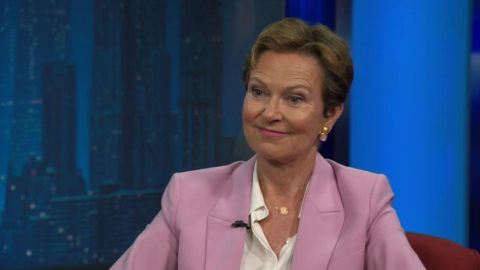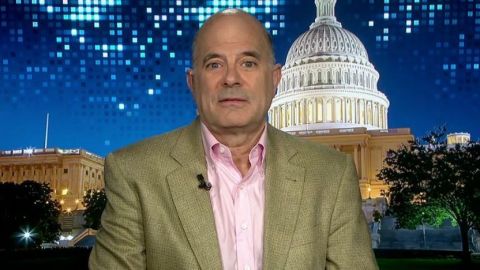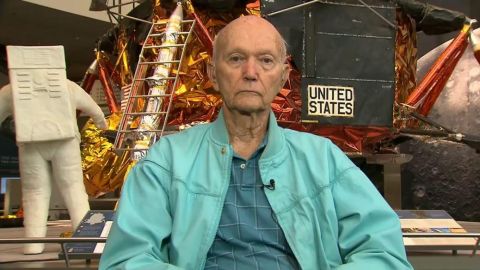Read Transcript EXPAND
CHRISTIANE AMANPOUR: And I just wanted to know whether you have a specific moment, a specific memory from blastoff to splash down that stands out, especially for you.
COLLINS: I think of all the things that happened on Apollo 11, there was so many of them. I always regard the flight to and from the moon is like a long and fragile days, the chain of events. But the one that I think that is the unanimous favorite of most space crews is when you see those three parachutes open. Wow. Up until then you thought you were coming home but you couldn’t be 100 percent sure. But you see the beautiful parachutes on top of the Apollo Command Module and you say, “Here we go. It’s OK.”
AMANPOUR: Wow, wow. You know what, in a way, I hadn’t expected you to say that because it does bring up the whole concept of cosmic death and what might have happened. Did you think about death? Did you think when you were up there that you might not come back or Neil Armstrong or Buzz Aldrin might not make it back off the moon into the module and back home?
COLLINS: Oh, certainly. The three of us were keenly aware of the dangers involved but it was not something that we talked about. We never said “Oh, gosh. Maybe this is getting too dangerous. We shouldn’t do it.” That was way back in some obscure dark corner of our mind and we had more important things to do, if not more important, more immediate things to take care of.
AMANPOUR: You certainly did. And obviously, being on the moon, orbiting around as you were waiting for them and conducting your unique and special mission was unbelievable. And I just want to ask you whether you still remember that first glimpse, that overwhelming glimpse of what you described as finally a three-dimensional sphere that was the moon. You talk about it very in detail and poignantly in your book.
COLLINS: Well, I don’t know how poignant the view was, but it was certainly an impressive view. You know that tiny little silver sliver that lives up above my backyard had been replaced by a gigantic, three- dimensional bulb that’s staying that was almost trying to push its way into our window. The sun was coming from behind. So, it was — the sun’s rays were cascading around the rim and it gave it a wonderful illumination accentuating the highs of the craters and the lows of the (INAUDIBLE) upon which the craters were raised. It was a great thing. However, it was nothing compared to seeing the earth from afar. That was the main chance. That was it.
About This Episode EXPAND
Christiane Amanpour speaks with Apollo 11 astronaut Michael Collins about the fiftieth anniversary of the moon landing. Charles Fishman, author of “One Giant Leap,” joins the program to discuss the men and women who helped get the first astronaut to the moon. Kati Marton joins Walter Isaacson to discuss the legacy of her late husband, the legendary diplomat Richard Holbrooke.
LEARN MORE


